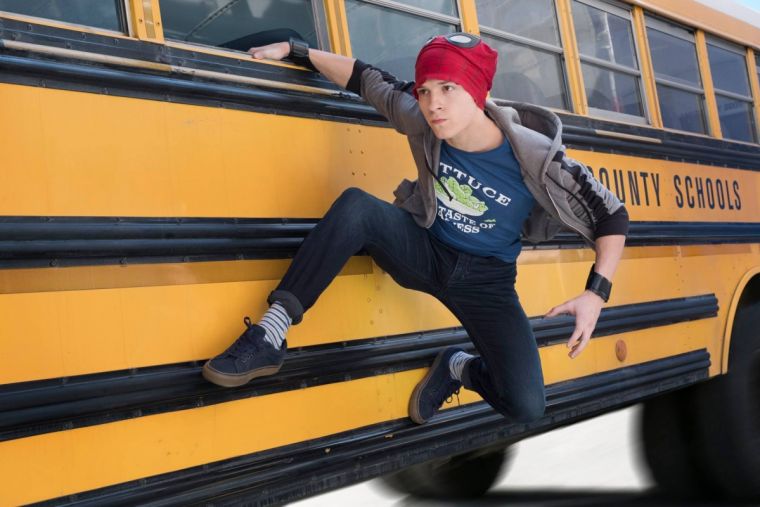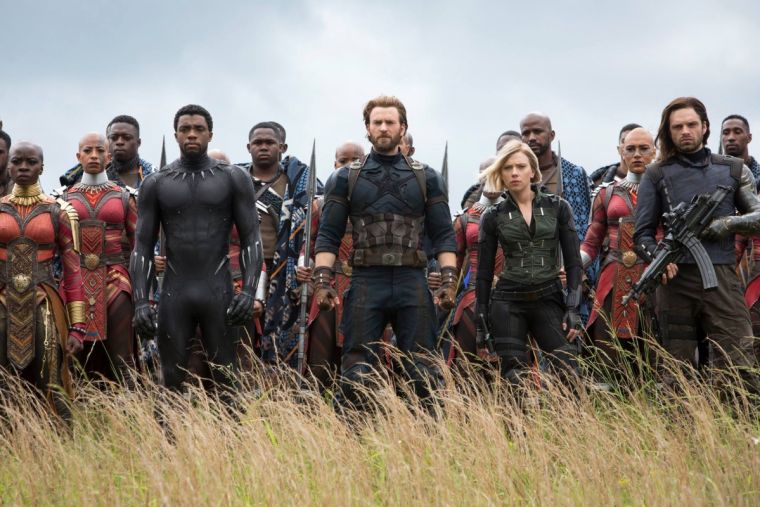Avengers: Infinity War won the biggest opening weekend of all time. How did Marvel do it?
You might have heard that a little indie flick named Avengers: Infinity War came out last week and duly demolished the box office. The film starring the villainous 'mad titan' Thanos has proved its own titanic worth, winning the biggest opening weekend of all time.
Essentially 18 films in the making, coming 10 years after the supremely successful Marvel Cinematic Universe (MCU) began (with Iron Man), it's a cinematic event not lacking in hype and anticipation. The expectations not just of Marvel super-fans but millions of other viewers were resting on this film, and it didn't buckle under the pressure, winning critical acclaim alongside its commercial popularity.
So how did they do it? How did Marvel Studios, essentially unknown 10 years ago, muster up this string of successes, culminating in a behemoth that wrested Star Wars from its #1 spot? There are many reasons of course, some known only to box office mathematicians. But there's also something in the story Marvel has been telling, something deeply attractive and engaging, that has kept audiences coming back for more.

It's all connected
For a time around the release of the first Avengers film (2012), a tagline attended the films and TV connected to the MCU: 'Its all connected'. The promise of these films was not just individual blockbusters with their respective sequels, but a shared universe. A world in which all your favourite heroes could not just be depicted on screen, but could share that stage with each other.
Predictably, several other studios have attempted to replicate Marvel's magic, including their comic book rival DC, but none with anything like the same success. Obviously on a commercial level, the shared screen brings in the fans of the respective franchises (sells more tickets), but it's also narratively compelling. It opens up the imagination as new fantasy-collaborations are envisaged. It invites the audience not just to seek out individual experiences of escapism but to enter one expansive, cohesive world, an alternate reality.
Avengers, Assemble
Connected to its promise of a shared universe is the tantalising possibility – and the heart-breaking struggle – of unity and teamwork. As the mastermind behind the Avengers initiative Nick Fury puts it: 'There was an idea...to bring together a group of remarkable people, see if they could become something more. See if they could work together when we needed them to fight the battles we never could.'
Its an enterprise human beings have been wrestling with for some time, and collaboration and conflict are obviously familiar – perhaps central – to the life of the Christian church. At first it seems like the Avengers could never fit together, then they learn new things through one another, become something 'more' together. Then, as in Captain America: Civil War (2016), they clash again over personal and painful differences. Following this journey, invested in and identifying with its heroes, audiences find themselves recoiling at the losses and cheering when the squad discovers unity again.
We can't relate to godlike powers or facing off alien threats, but it's ultimately a human and (as in The Guardians of the Galaxy) intimate, familial bond between beings that connects us. In the pervasively polarised culture wars in which we now find ourselves, that project of togetherness might be the Avengers' biggest fantasy. Perhaps that's why we love it.

Death, hope and joy
Lastly, these films have been known, and lambasted by some, for their perpetual levity. Snappy quips and gags are aplenty, starkly setting the MCU apart from other more po-faced superhero endeavours (basically the DC universe). Perhaps concerned never to take caped crusaders too seriously, these films have always, even at their most serious (as Infinity War shows) made space for joy.
Again, it's no news that human beings like to laugh, not least in an age when we're more depressed at ourselves and the state of the world than ever. We don't need more doom and gloom, but a little levity might do us good. Comedy is also incredibly hard to do well, and the MCU hasn't always had enough appreciation for its smart writing in that aspect. There's something deeply restorative and therapeutic about good comedy: the welcome surprise of a smile, our irrepressible love of laughter – it helps us rediscover hope.
But if we yearn for joy, we seem to need the tragic too. Loss and lament are as much part of a whole human existence as being happy, and the Christian tradition – never afraid to 'go dark' – has much to say about that. Good storytelling also requires high stakes and meaningful action so that viewers truly care and engage in the given tale. That might mean death, and irrevocable despair, a path Marvel seems increasingly willing to tread.
Those high stakes – the potential to lose everything – are a thrill, and presumably a large part of what's driven many to Infinity War over the weekend: we've got to know if the heroes make it, or if their adversary (Marvel's best and most compelling yet) gets what he wants. We want to know, because 18 films in (and counting) that story is now our story too.
Well, maybe it's not for everyone. I'm something of a superhero fan so yes, I'm biased and at times a little too defensive. But even if it's not to your taste, there's something fascinating, impressive and even theologically compelling about the MCU, especially the cosmic yet personal proportions of Infinity War. And though 'superhero fatigue' may be a legitimate threat, these films and their audiences aren't tired yet.
The best studies of the superhero genre recognise that it isn't just brazen escapism that refuses to reckon with reality: its superpowers and heroic feats illustrate our weakness but also our potential, they explore what is, but also what could be. They're about multiverses, magical realms and impossible odds. They're also about courage, trust, tragedy and dependence. They invite us to imagine the transcendent, but at the same time, reimagine the everyday.
You can follow @JosephHartropp on Twitter











